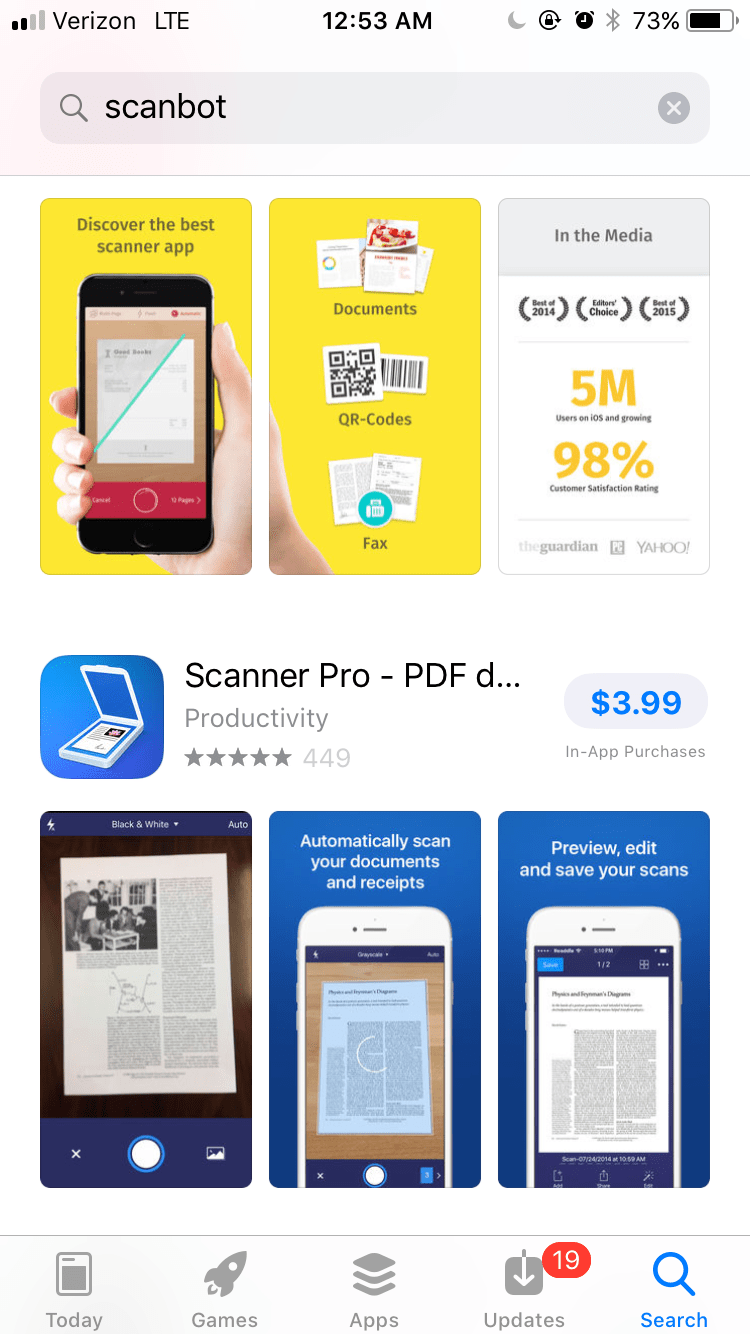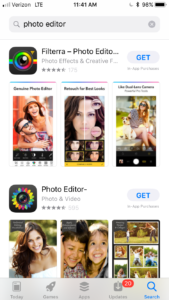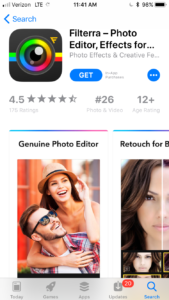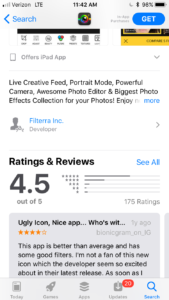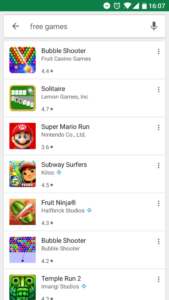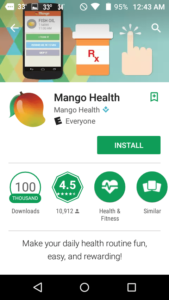Incipia blog
ASO App Store Optimization
In this post about App Store Optimization we will detail: Continue learning about App Store Optimization through our ASO posts page, which has close to 100 unique posts on how to learn and manage App Store Optimization. If you are seeking our expert help in helping improve your app's App Store Optimization strategy, contact us to discuss how we can help you. These algorithms are the secret sauce in determining which apps to display and in which positions, each time a person searches a keyword in the App and Play stores. While the exact workings of these massive algorithms will forever be unknown, app marketers have pieced together an understanding of their workings from a variety of sources, including what Apple and Google indicate in official documentation, what is known of similar algorithms like Google’s PageRank and a whole host of A/B testing. The below list is a combination of generally accepted factors, as well as my own interpretations of the factors which influence the Apple and Google app rankings algorithms: Positive factors: Negative factors: Keep in mind that an app’s ranking is relative downloads and reviews from the same country; downloads from an ASO marketing campaign in India will not affect the ranking of an app in the U.S. Positive factors: Negative factors This is what people see when they search a keyword and come across your app; however users won’t see all of the information in your store listing at the same time and they won’t give each element of your store listing equal weight when deciding whether to download your app or not. Here is a diagram showing an Apple App Store listing from a prospective user’s view. Consider the following tips and tricks:
The App Rankings algorithm:
Factors influencing Apple App Store keyword rankings:
Factors influencing Google Play store app rankings:
Your App Listing
View After Searching a keyword (iOS Search Impression)
View After Tapping into an App Listing (iOS Product Page)
iOS Product Page Scrolled Down Slightly
Tips for iOS App Store Optimization
- Perhaps the single most important detail is your rating. Not only does it have a significant bearing on your rank, but also people will download high rated apps and will not download poorly rated apps. In iOS 11, app ratings are now only listed for all time. Ratings no longer automatically reset after new versions are submitted and developers can choose to manually reset their ratings.
- With iOS 11, you'll notice that your app's top chart ranking appears in the product page. This means that apps that have earned a top chart ranking will see better conversion rate, similar to how the total downloads estimate affects conversion rate for Android apps.
- In iOS 11, preview videos also autoplay in search and product page results, meaning that this element is the most important factor in improving your app's CTR and CVR.
- The first 3 screenshots (or preview video and screenshots 2-3) appear in the search results page. Do not forget to order your screenshots accordingly.
- The first 130 characters of your full description appear before the "more" truncation and determine whether users will decide to read the rest of your description (like email subject lines/previews). Thus, this text matters more than any other part of your description: put your hook and key selling points in this first section of your full description.
- Additionally, be aware that there is a so-called “7 day cliff” of visibility when a new app is launched. For 7 days, Apple will artificially boost your visibility, causing you to get more searches and downloads, but resulting in a sharp decline in visibility at the end of the boost week.
- Also, be sure to reply to user reviews to assure them and other users that you care about people who download your app, which can also raise your star rating (if you are able to address issues raised in lower rating reviews).
View After Searching a keyword (Android Search Impression)
View After Tapping into an App Listing (Android Store Listing)
Tips for Android App Store Optimization
- For Android apps, the most important visual in the search impression is your app's icon. Devote extra effort to this visual element in Google Play Experiment A/B testing to improve your ASO performance.
- Your app's rating is also highly important, as it appears in the search results page. Shoot for a start rating of 4.0 or higher.
- The first visual element that users who land on your store listing will see is your feature graphic or app video. Ensure that this element does a good job of converting users' initial interest into sustained interest by combining entertainment with intrigue.
- Because your screenshots do not appear in search results, they do not need to be as flashy and eye-catching, as user who see them will already have chosen to learn more about your app. Use your Android screenshots to explain, rather than entertain.
- Take advantage of Google's rendering of HTML elements in your long description, like emojis and font formatting.
- Be sure to leverage Google's A/B testing engine to make continuous, incremental improvements to your app's elements, and strengthen your CVR.
- As with iOS, be sure to reply to user reviews.
Keyword research Tips
Do research on keywords that are as high in traffic and low in competition as you can find, and put those keywords into your app metadata to see how you rank for them. Then, check to see that you are ranking well for the keywords you want to, and adjust your keyword mix and density as necessary. Keep these 3 app store keyword optimization tips in mind:
- Try to find keywords for which you can rank top 10 for. If you rank in place #2,319, it doesn’t matter how high of search volume exists for that keyword; you’ll never see the light of day. Look for keywords that have a high chance of ranking top 10, or a low total number of competing apps.
- Do a live search for your app store keywords before you use them to ensure people using that keyword are who you want to get in front of. Look at the other apps that pop up and use their presence as a proxy for what types of apps those searchers are looking for. For example, while “goal app,” may be taken as an app to help people track their personal or professional goals, doing a simple search reveals that this is only partially the main intent of people looking for “goal apps.”
- Remember that having a good search-to-click ratio AND click-to-download ratio will affect your overall app rankings: optimize your keywords over time for those that you see improvements for in app rankings, and divest from those where your app rankings fall.
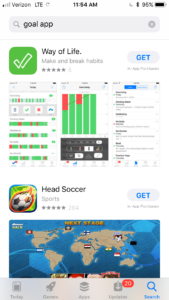
App store optimization services and tools
A must-have component in an ASO marketing strategy are app store optimization companies, which can help you improve your app store visual look, do keyword optimization, run competitive app research, improve rankings and more. Check out our list of over two dozen ASO tools to find one that fits your needs, as well as our essential ASO resources list.
That's all for now, folks! Be sure to bookmark our blog, sign up to our email newsletter for new post updates and reach out if you're interested in working with us.
Incipia is a mobile app development and marketing agency that builds and markets apps for companies, with a specialty in high-quality, stable app development and keyword-based marketing strategy, such as App Store Optimization and Apple Search Ads. For post topics, feedback or business inquiries please contact us, or send an inquiry to hello@incipia.co.
Categories
Tags:
- A/B testing
- adjust
- advertising
- adwords
- agile
- analytics
- android development
- app analytics
- app annie
- app development
- app marketing
- app promotion
- app review
- app store
- app store algorithm update
- app store optimization
- app store search ads
- appboy
- apple
- apple search ads
- appsee
- appsflyer
- apptamin
- apptweak
- aso
- aso tools
- attribution
- client management
- coming soon
- design
- development
- facebook ads
- firebase
- google play
- google play algorithm update
- google play aso
- google play console
- google play optimization
- google play store
- google play store aso
- google play store optimization
- google uac
- google universal campaigns
- idfa
- ios
- ios 11
- ios 11 aso
- ios 14
- ios development
- iot
- itunes connect
- limit ad tracking
- ltv
- mobiel marketing
- mobile action
- mobile analytics
- mobile marketing
- monetization
- mvp
- play store
- promoted iap
- promoted in app purchases
- push notifications
- SDKs
- search ads
- SEO
- skadnetwork
- splitmetrics
- startups
- swift
- tiktok
- uac
- universal app campaigns
- universal campaigns
- user retention
- ux
- ux design
